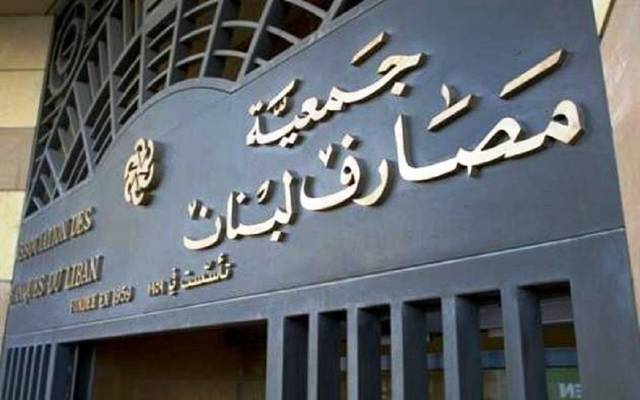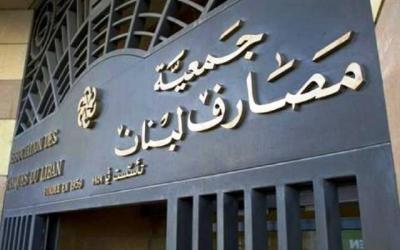The newspaper "Al-Diyar" wrote: While the world still holds its breath over the ongoing Russian war on Ukraine, amid anticipation of economic and military repercussions, "Israel" lives in a state of "existential panic" as international commitments to adhere to the Vienna nuclear agreement with Iran loom, which will return stronger at the expense of US influence in the Middle East, according to "Israeli estimates." This has led to a search for a safe haven for settlers in the Greek islands, fleeing from presumed Hezbollah rockets in the upcoming war.
Locally, as electoral cards are being rearranged among competing forces, the judicial-banking clash escalated yesterday with new decisions from the Attorney General of Mount Lebanon, Judge Ghada Aoun, amidst a battle over sources and mutual accusations of political and electoral interests behind judicial moves. Meanwhile, banks are heading towards escalation in the coming hours, considering announcing a one-day warning strike next Monday. Prime Minister Najib Mikati, who previously described actions against banks as "random and emotional," failed to arrange a temporary "truce" aimed at calming the situation and finding "middle ground" solutions, as he was unable to remove the files from the hands of Attorney General Ghada Aoun, after the chief prosecutor Ghassan Oueidat, who fears dire repercussions for the judiciary, refused to comply with evident political demands.
According to information from "Al-Diyar," the Prime Minister feels "extreme displeasure" with the new judicial actions, considering them a "political message" and dangerous escalation that challenges his stance against reckless decisions that could lead to the collapse of the banking sector. Judge Aoun dealt a new "blow" yesterday, issuing an arrest warrant for Raja Salama, the brother of the Governor of the Central Bank of Lebanon, and enacted a travel ban on the Chairman of "Fransabank" and froze the bank's assets, placing a prohibition notice on its shares and real estate across all commercial companies.
While the "Association of Banks" convenes a general assembly, its sources hinted at taking escalatory steps starting next week, including announcing a general strike, "if the political authorities do not take measures to stop legal violations against banks and curb the blatant overreach by certain parties, particularly judicial ones, in violating laws and continuing arbitrary practices leading to judicial chaos," according to banking sources.
In a bid to pressure the judiciary, "Fransabank" closed all cash drawers in its branches yesterday, even though funds were available; only checks and interbank transfers were processed. Judicial sources described these measures as "arbitrary," stating that what Fransabank did was a blatant violation of the rights of employees and depositors, as the executive seizure of the bank's assets falls within a series of similar judicial decisions against banks in default for not paying depositors, which is a procedure banks resort to when their debtors fail to repay loans.
While sources from "Fransabank" confirmed that "the bank check is a legitimate means of payment and is still used in most transactions," a judicial source asserted that these claims are "false." The execution order came after the bank refused to release a deposit of $35,000 to the claimant, informing him he only benefited from a circular from the Central Bank. Consequently, the claimant filed a lawsuit and won, compelling the bank to pay the deposit, leading the bank to issue a check in the depositor's name, which was deposited by a notary for the depositor, who then closed his account entirely.
In the unfolding challenges, the depositors have faced significant difficulties in retrieving their funds, prompting the "Depositors' Association" to accuse "Fransabank" of distorting the important and unprecedented judicial incident pertaining to the seizure of the bank's main treasury, shares, and property for public auction, according to Judge Marianna Anani's ruling in favor of a depositor.
Meanwhile, banking sources warned of a grave danger threatening the banking sector and depositors' funds, accusing political parties of attempting to undermine the sector, pushing it toward closure and liquidation. They called for political and governmental authorities to take appropriate actions to stop this "clash" with the judiciary, which benefits no one. Lastly, liquidity issues emerged as a significant concern, with financial measures by the Central Bank leading to a substantial depreciation of the Lebanese pound, raising fears of a cash liquidity crisis in local currency.
In other news, Attorney General Ghada Aoun decided to detain Raja Salama after his investigation concerning illegal enrichment, while PM Mikati intervened to allow the Governor of the Central Bank to travel for work, which Aoun rejected.
Furthermore, the spokesperson for the International Monetary Fund, Gerry Rice, announced that the fund continues to work with Lebanese authorities on economic reforms, with plans to send another mission of experts to Lebanon this month.
Electoral preparations continue as Speaker Nabih Berri discussed parliamentary elections with Interior Minister Bassam Mawlawi, who confirmed readiness for elections despite the failure of political negotiations between "Amal Movement" and "Free Patriotic Movement" in the Sidon-Juzin electoral district, mainly due to internal disagreements over nominee support.
Finally, Lebanese President Michel Aoun received the new commander of the UN forces in southern Lebanon (UNIFIL), General Arnaldo Lazaro, emphasizing Lebanon's commitment to implementing Security Council Resolution 1701, highlighting continued Israeli violations that threaten stability in the south.




